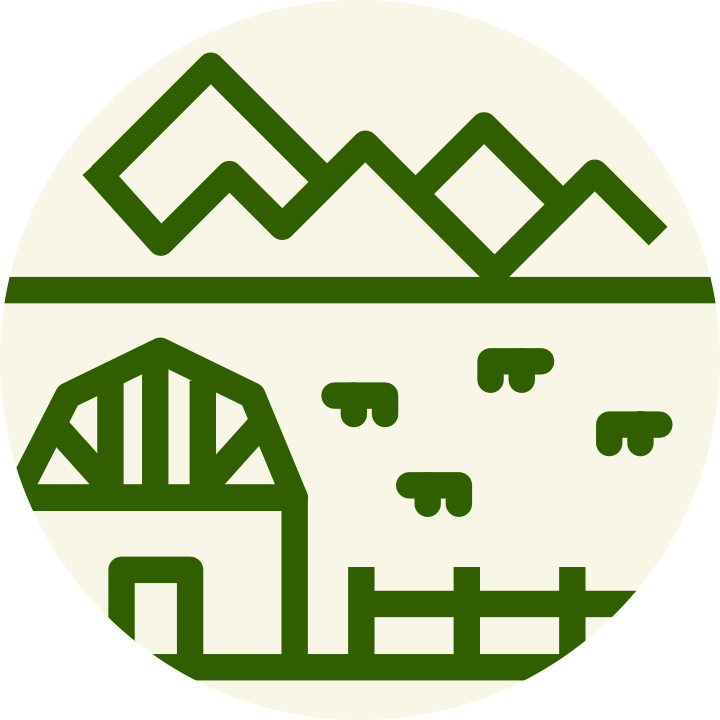Rania Dimou is a young lady (37 years old) trying to establish an organic sheep farm. She has worked on the farm for the last 20 years. All her family is dealing with transhumance livestock.
Rania Dimou is a young lady (37 years old) trying to establish an organic sheep farm. She has worked on the farm for the last 20 years. All her family is dealing with transhumance livestock.
Rania Dimou
2002
Mikri Gotista, Greece
Sheep are raised principally for their milk, meat, and fibre (wool).

Farm

Summer pastures
The farm was created by Rania Dimou’s husband’s grandfather with a small number of animals and was joined with Rania Dimou’s mother-in-laws farm. The livestock was increased by Rania Dimou’s father-in-law and her husband as new breeders. They used to have rare breeds on their farm, but as these rare breeds did not have high milk production, they changed their flock to other more productive breeds. During the winter, animals are indoor in the stable. The farm has a milking parlour. The manure is used in the cereal fields. Rania Dimou is a high school graduate and has participated in seminars for young livestock breeders. She is involved in the local self-government.
Corine-Land-cover categorization and codes:
The farm has a mixed flock of 500 sheep (Chios, karamaniko-Katsika, and Lacoune breeds). The farm is an organic farm.
The movement is vertical on foot and starts from Mikri Gogista village at 692 m. After about 6 hours, the flock arrives at the summer grasslands at the Peristeri area in Lakmos mountain at 1800 m.
The milk production is sold to the milk industry (Dodoni)
Rania Dimou believes that the main problem for her farm is the road network. The Forest Service, in accordance with the legislation, does not allow asphalt paving to be done.
For Rania Dimou the economic gain is the main reason to continue farming.
The farm has still some sheep of rare breeds. However, Rania Dimou is considering switching the flock entirely to a more productive breed because of the rare breeds’ low milk production.
Rania Dimou’s production system is organic because she has better economic profit from this type of production. She sells the milk at a higher price compared to other farms.
The farm offers the main income for the family.
Rania Dimou grazes her livestock to keep the sustainability of transhumant animal farming because she understands how it benefits the landscape’s biodiversity. She and her family try to minimise the environmental impact of their actions. They try to apply a cyclical economy to the farm. However, the fact that their work is not acknowledged and that people are unaware of how much they contribute to biodiversity worries Rania Dimou. She feels that the lack of highland grazing leads to reduced wildlife habitats, increased fires, and disturbs the ecosystem’s equilibrium.
No official networking between breeders exists, so breeders try to create experience sharing groups on their own. Additionally, Rania Dimou said that the cheese factory located in Baltouma village offers only one possibility for training. This factory was built the last year within the framework of the Medina program.
Rania Dimou would like to be involved in a rearing program about rare breed. Moreover, she wants to start a female enterprise based on a local cheese product named “Galotiri”.
According to the opinion of Rania Dimou, the transhumant farming system helps maintaining the of biodiversity in highlands.
She advises someone dealing with transhumance to be patient, as it is a challenging profession.

Funded by the European Union. Views and opinions expressed are however those of the author(s) only and do not necessarily reflect those of the European Union or the European Education and Culture Executive Agency (EACEA). Neither the European Union nor EACEA can be held responsible for them.